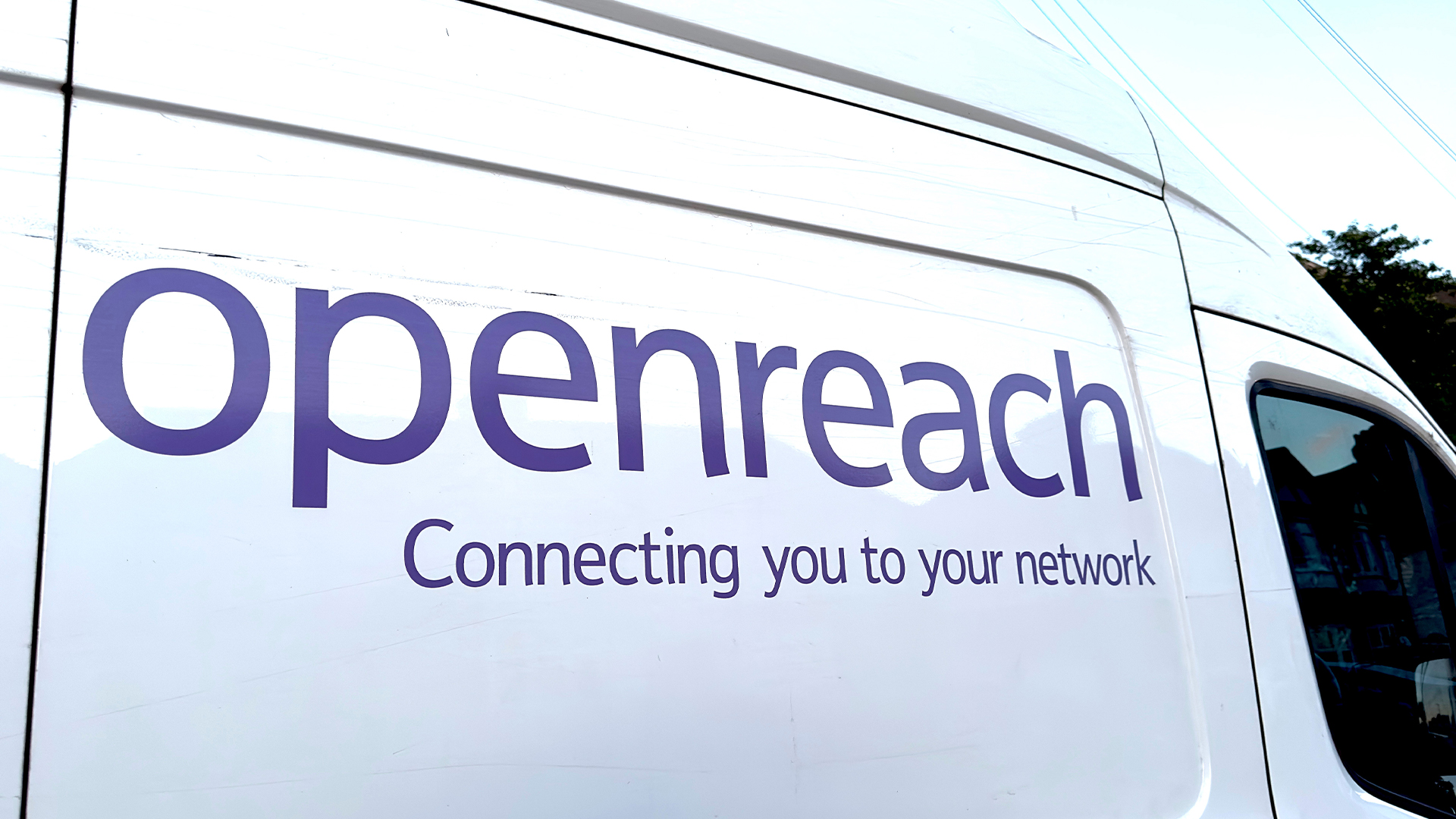Sponsored by BT
The move to a digital network and its role in the bigger picture of achieving true digital transformation: how SMBs can set themselves up for success
Beyond the dial tone, the digital switchover is the key to SMB success


The impending retirement of the UK's copper phone network is about much more than the future of the traditional landline. Indeed, for small and medium-sized businesses (SMBs), the nationwide "digital switchover" is a watershed moment, a fundamental upgrade to the nation's infrastructure that serves as the launchpad for true digital transformation.
While the technical engine of this change is Internet Protocol (IP), the method for sending data over the internet, the implications for businesses go far beyond the technology itself. The switchover isn't just a technical necessity; it's a strategic opportunity to build a more resilient, efficient, and competitive business.
The hidden connections
Many small and medium-sized businesses still think of the Public Switched Telephone Network (PSTN) as nothing more than a tool for voice calls, overlooking its role as the backbone for countless other systems working behind the scenes. For decades, these copper wires have quietly powered everything from payment terminals to alarm systems, connecting devices that keep operations safe, compliant, and running smoothly.
As the switch-off of the PSTN approaches, the impact will ripple far beyond the phones on the front desk. Those card machines at checkout often depend on analog lines to approve transactions. Many fire and security alarms, crucial for protecting personnel and property, route their alerts through PSTN, and without timely upgrades, the links to emergency services will go silent.
Older CCTV setups, too, may rely on these lines to transmit footage or signal trouble. Even door entry systems and the mandatory emergency phones inside lifts are, more often than not, wired directly into this aging network.
The real costs of delay
Although the final deadline for the switch-off has been extended to January 2027 to protect vulnerable residential customers, BT is strongly urging businesses to migrate by the end of 2025. This is not an arbitrary target. The 40-year-old analog technology is becoming increasingly fragile and expensive to maintain.
According to Ofcom's "Connected Nations" report, the number of significant resilience incidents on the PSTN saw a sharp 45% increase in 2024, highlighting the network's growing instability. Delaying the switch means relying on a network that is more prone to failure, where replacement parts are scarce, and engineering expertise is dwindling.
Howard Watson, BT's head of security and networks, has stressed: "The urgency for switching customers onto digital services grows by the day because the 40-year-old analogue landline technology is increasingly fragile."
Beyond the risk of service failure, inaction carries other significant risks for small businesses:
- Competitive disadvantage: While proactive businesses are leveraging digital tools to enhance efficiency and customer service, those smaller firms left using legacy systems will be held back by outdated technology.
- Missed opportunities: A digital network is the gateway to a host of transformative technologies. Delaying the switch means missing out on the benefits of cloud integration, data analytics, and unified communications that drive essential growth for small businesses.
- Logistical bottlenecks: Waiting until the last minute will create a rush for engineering appointments, potentially leaving small businesses in a queue and at risk of missing the final deadline.
The foundation for digital transformation
For many small businesses, the digital switchover might seem like nothing more than replacing an old phone line with a newer one. But to think of it that way is to completely miss the bigger picture. What’s really being laid is the cornerstone of a digital-first future, an IP-based network that doesn’t just make phone conversations clearer but unlocks the full spectrum of digital transformation.
With this modern infrastructure in place, small businesses can reimagine how they work and communicate. Instead of juggling separate tools, they can bring everything together into one seamless platform - voice calls, video conferencing, instant messaging, and email - all working in harmony. Whether teams are in the office or spread across remote locations, collaboration becomes second nature.
But the benefits don’t stop at communication. A digital network allows data to flow more freely, empowering businesses with insights that can shape smarter decisions.
Analytics tools make it possible to go beyond guesswork and truly understand customer behaviour, yet research from Sage reveals that only a quarter of SMBs currently use such tools. That means the opportunity is vast, waiting for those ready to harness it.
The cloud, too, finds its full potential in this environment. From accounting platforms to customer relationship management systems, vital business applications increasingly depend on a stable, high-speed internet connection. A digital-ready network provides exactly that, ensuring companies can adopt and expand cloud solutions without compromise.
The power of this digital foundation is clear in the case of York Supplies, a hardware store that has served its community since 1947.
When a community co-op took over to save the business, they inherited an infrastructure that was very old, with associated bad connectivity holding them back.
“We inherited with the business a long-standing relationship with BT. But the infrastructure was quite elderly, and the connectivity and the bandwidth in the building were poor. We’ve now implemented the new system and switched from copper to fibre,” said Richard Bickle, director of York Supplies community society.
“The BT engineers came and installed the new hardware. They explained to us what we had to do, but, fundamentally, it wasn’t complicated, and the new system simply works. It’s [just] there in the background.”
Upgrading from copper to a full fibre connection with BT provided the digital backbone they needed to modernize. For them, it meant being able to effectively use social media to grow customer engagement and moving from slow, phone-based supplier orders to having that information at their fingertips online, securing the future of a vital local business.
“We’ve got some quite exciting plans,” Bickle added.. “[York Supplies] is too big a part of the local community. The services it offers are unique and would be very difficult to replicate if it were lost.”
How SMBs can set themselves up for success
For small businesses, the coming digital switchover is not just a technical upgrade; it’s a crossroads. Those who act early can shape a stronger, more resilient future, while those who wait risk scrambling to catch up when the inevitable happens. The path forward is not about short-term fixes, but about laying the groundwork for long-term success.
The journey begins with awareness. Too often, companies think only of their phone system, but in reality, analog lines connect far more: alarms, payment terminals, even fax machines in some cases. A thorough audit helps uncover every dependency, making sure nothing is left behind in the shift.
The next step is partnership. Engaging with a trusted early means you don’t have to navigate the transition alone. Providers like BT Business are already working alongside SMBs, helping them map out a migration path, test equipment compatibility, and smooth out every wrinkle before it becomes a hurdle.
But preparation isn’t just about swapping systems; it’s about reimagining possibilities. Instead of simply rebuilding the old set-up in a digital format, forward-thinking SMBs are asking bigger questions: Could a VoIP solution tied directly into a CRM speed up sales? Could video conferencing replace costly travel without sacrificing personal connection?
And then comes the most important element: urgency. The switchover is happening, whether businesses are ready or not. By treating it as a strategic priority today, SMBs not only ensure reliability tomorrow but also gain early access to the advantages of digital: improved efficiency, smarter tools, and a sharper competitive edge.
Copper is being retired, but this isn’t the end of an era - it’s the start of a new one. For small businesses willing to take the first step now, the digital future isn’t something to brace for. It’s something to seize.
Sign up today and you will receive a free copy of our Future Focus 2025 report - the leading guidance on AI, cybersecurity and other IT challenges as per 700+ senior executives
Rene Millman is a freelance writer and broadcaster who covers cybersecurity, AI, IoT, and the cloud. He also works as a contributing analyst at GigaOm and has previously worked as an analyst for Gartner covering the infrastructure market. He has made numerous television appearances to give his views and expertise on technology trends and companies that affect and shape our lives. You can follow Rene Millman on Twitter.
-
 Mistral CEO Arthur Mensch thinks 50% of SaaS solutions could be supplanted by AI
Mistral CEO Arthur Mensch thinks 50% of SaaS solutions could be supplanted by AINews Mensch’s comments come amidst rising concerns about the impact of AI on traditional software
-
 Westcon-Comstor and UiPath forge closer ties in EU growth drive
Westcon-Comstor and UiPath forge closer ties in EU growth driveNews The duo have announced a new pan-European distribution deal to drive services-led AI automation growth
-
 Openreach wants enterprises to move quickly ahead of the PSTN switch-off, so it’s hiking prices on legacy services to push them into action
Openreach wants enterprises to move quickly ahead of the PSTN switch-off, so it’s hiking prices on legacy services to push them into actionNews Businesses face massive price hikes if they fail to act before the PSTN switch-off
-
 What exactly is IP, and why does it matter right now?
What exactly is IP, and why does it matter right now?Supported The future is calling: IP really will be a lifeline for small businesses...
-
 The analogue to digital switchover affects way more than landlines: Why small businesses need to take action now
The analogue to digital switchover affects way more than landlines: Why small businesses need to take action nowSupported The shift away from PSTN is about more than just new tech – sticking with the old system is not an option
-
 What is the digital switchover, and why does it matter to small businesses?
What is the digital switchover, and why does it matter to small businesses?Supported Adopting IP systems reduces costs and unlocks new innovation
-
 Is your small business ready for the move to digital? Key considerations and actions you need to take today
Is your small business ready for the move to digital? Key considerations and actions you need to take todaySupported From an initial plan to a full digital service, here is everything you need to know about the digital switch to an all-IP business
